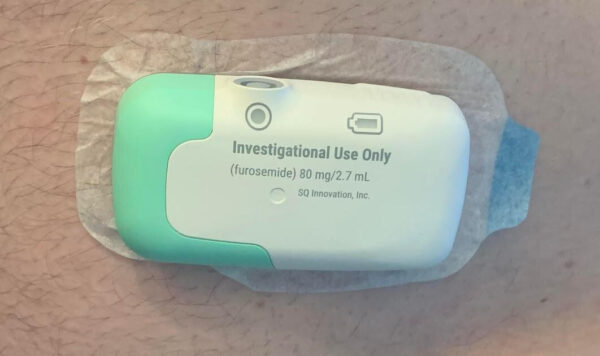Royal Bournemouth Hospital’s cardiology team first to trial new technology for heart patients
The Royal Bournemouth Hospital’s cardiology team is the first in England to trial new technology which could reduce the stay for patients admitted with heart failure.
Many people in the UK are thought to have undiagnosed heart failure.
It is one of the most common reasons for admission to hospital, with over 800 patients admitted annually at University Hospital Dorset (UHD).
The length of inpatient stay can be long with the average admission lasting up to 13 days in hospital.
Traditionally treatment includes an intravenous drip by cannula to receive a medication called furosemide, to help the body remove excess water.
Patients must remain in hospital while connected to the drip.
In June, patient Matthew Cramer, 57, from Bournemouth had a small device attached to his abdomen which allows for furosemide to be delivered in a home environment.

The device is similar to how some diabetic patients receive insulin.
He was the first patient at UHD to receive the device and the first in England to take part in the trial known as SUBCUT-HF.
Matthew said: “I would much rather be at home than staying in hospital.
“The specialist care team is very knowledgeable and made me feel comfortable.
“Technology is moving forwards and if I can help anyone by taking part in this trial, I am very happy.”
Dr Chris Critoph, Consultant Cardiologist, said: “I am very proud to be part of the research team.
“It wasn’t long ago we did not have much heart failure research at the trust and now we are being picked first for cutting-edge heart failure trials as we have a track record for delivering.”
“We hope this is a fantastic way to improve patient satisfaction and comfort, but also a dramatic cost saving to UHD by reducing the length of hospital stays.”
Share us with your friends on social media, and have a listen to Bournemouth One online and on DAB for all your local news, traffic, jobs, weather, coastal info and more.
Register below for free regular updates via email.

